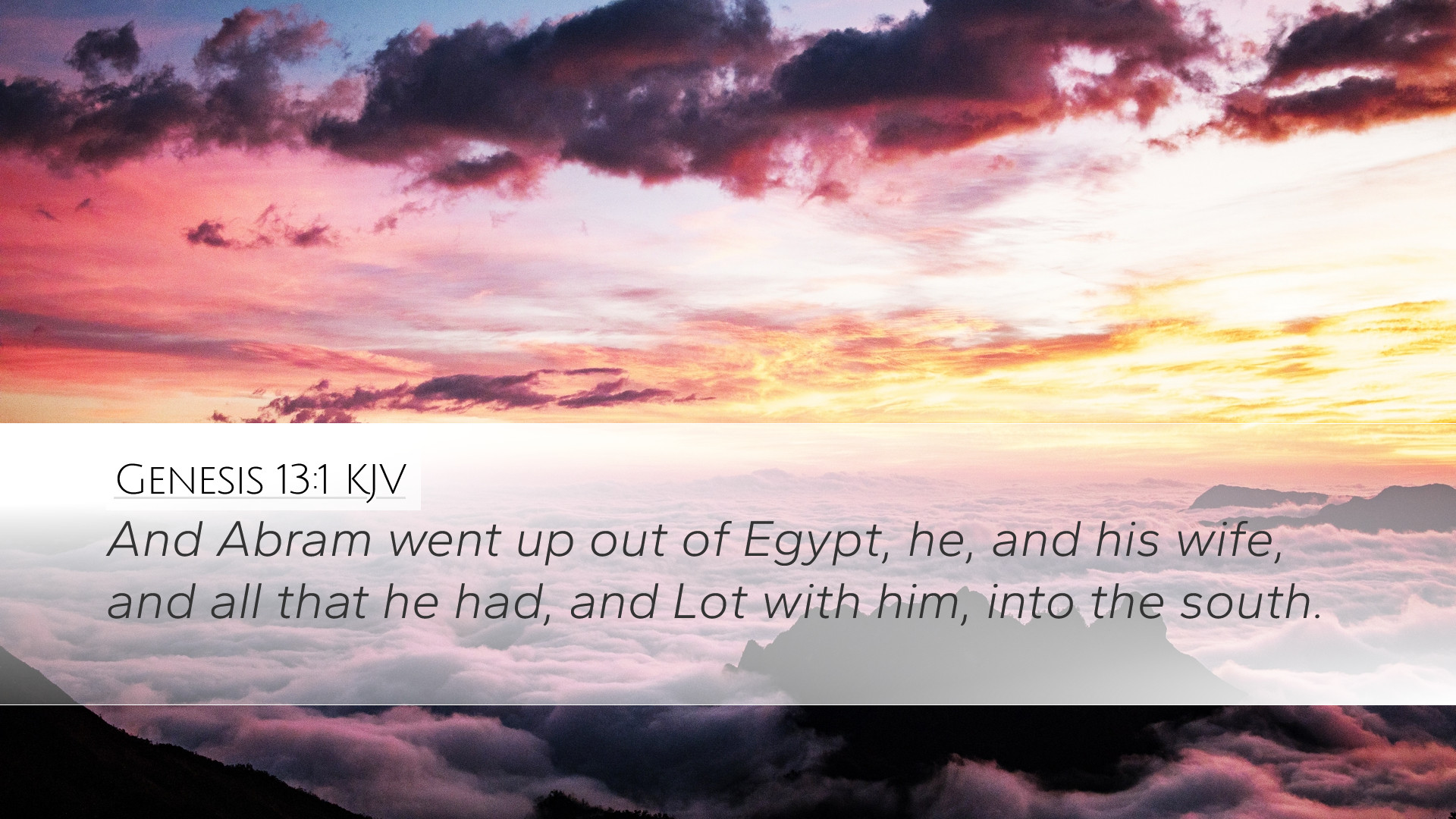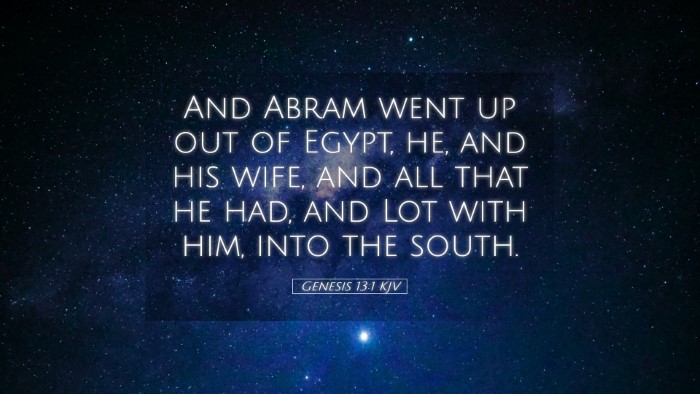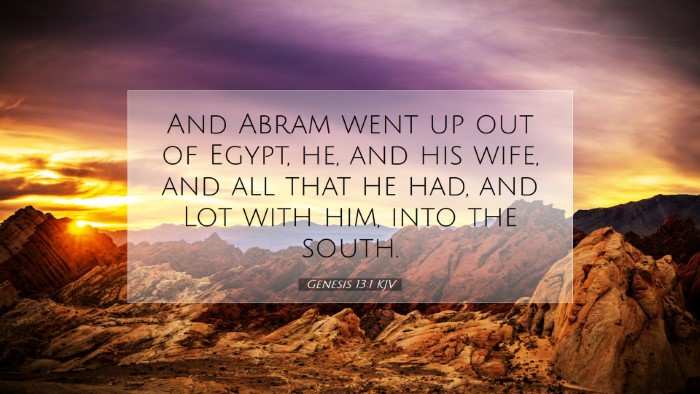Commentary on Genesis 13:1
Verse Text: "So Abram went up from Egypt, he and his wife and all that he had, and Lot went with him to the Negeb."
Introduction
This verse marks a significant moment in the narrative of Abram (later named Abraham), demonstrating his faith and obedience amidst the complexities of life. After experiencing trials in Egypt, Abram returns to the land of promise. This commentary draws insights from esteemed public domain sources, helping pastors, theologians, and Bible scholars to unpack its depth and implications.
Contextual Analysis
Genesis 13:1 occurs in the aftermath of Abram's sojourn in Egypt due to famine in Canaan (Genesis 12:10). The move to Egypt, while pragmatic, resulted in various complications, including the peril relating to Sarai (Sarah), Abram's wife. The circumstances of their return to Canaan provide a rich ground for theological reflection.
The Journey Back: Faith and Obedience
Matthew Henry emphasizes Abram's return as an act of faith, illustrating that despite his earlier missteps, he recognizes the necessity of returning to the land promised by God. Henry states that Abram’s journey home reflects a broader principle of repentance and divine restoration, showcasing the grace of God that calls His servants back to His purpose.
Albert Barnes adds that Abram’s departure from Egypt signifies a withdrawal from a place of worldly provision that had led him away from God's guidance. Abram’s upturning from Egypt to the Negeb underscores a turning point—a return to reliance on God for sustenance.
Family Dynamics: The Role of Lot
In this verse, we also see Lot accompanying Abram. Adam Clarke points out that this relationship is pivotal—it demonstrates both the blessings and burdens of family ties. Lot was perhaps initially a source of companionship and support for Abram, indicating the importance of community in the journey of faith.
However, as the narrative unfolds, the relationship becomes strained. This foreshadows deeper issues that will arise in their journey, a theme that Clarke notes underscores a caution regarding attachments that can lead to conflict or distraction from God's will.
The Negeb: A Symbol of Divine Guidance
The mention of the Negeb (or Negev) holds symbolic significance. The region, known as arid and challenging, evokes themes of testing and dependence on God. Henry suggests that God often leads His servants into 'desolate' places, intending to strengthen their faith. This barren landscape serves as a backdrop for God's miracles.
Barnes adds that the Negeb’s harsh conditions call for faithfulness in trials, suggesting that in returning to the Negeb, Abram was reenacting a commitment to trust in divine provision, even when external circumstances appear unfavorable.
Theological Implications
This single verse serves as a commentary on the nature of faith and the journey it entails. Abram's return signifies a profound aspect of the believer's walk—the movement away from self-reliance towards total dependence upon God's promises.
Clarke observes that the act of going up from Egypt also represents a broader meta-narrative of moving from a state of spiritual barrenness into one of abundance and life that comes from God. The transition from Egypt to Canaan can be seen as a living parable of salvation and the journey toward the fulfillment of God’s promises.
Lessons for Today's Believers
- Repentance: Just as Abram turned from Egypt, believers are called to recognize when they have strayed and return to God’s path.
- Trust in God's Provision: Like Abram in the Negeb, Christians are often called to places of challenge, yet God’s faithfulness prevails in those situations.
- The importance of Relationships: Lot’s journey with Abram reminds believers of the significance of surrounding themselves with those who encourage their faith, while also recognizing the potential for conflict.
- God's Guidance: This verse exemplifies God as a guiding force; believers are encouraged to seek His directions in all aspects of life.
Conclusion
Genesis 13:1 serves as a rich text, offering much for pastors, students, and theologians alike. The return of Abram from Egypt is not merely a geographical shift but a deeply spiritual one, rich with implications about faith, dependence, and the journey required to walk in accordance with God’s will. Understanding this narrative allows modern believers to better navigate their own journeys of faith, equipped with the insights gleaned from the commentaries of those who have walked this path before.


